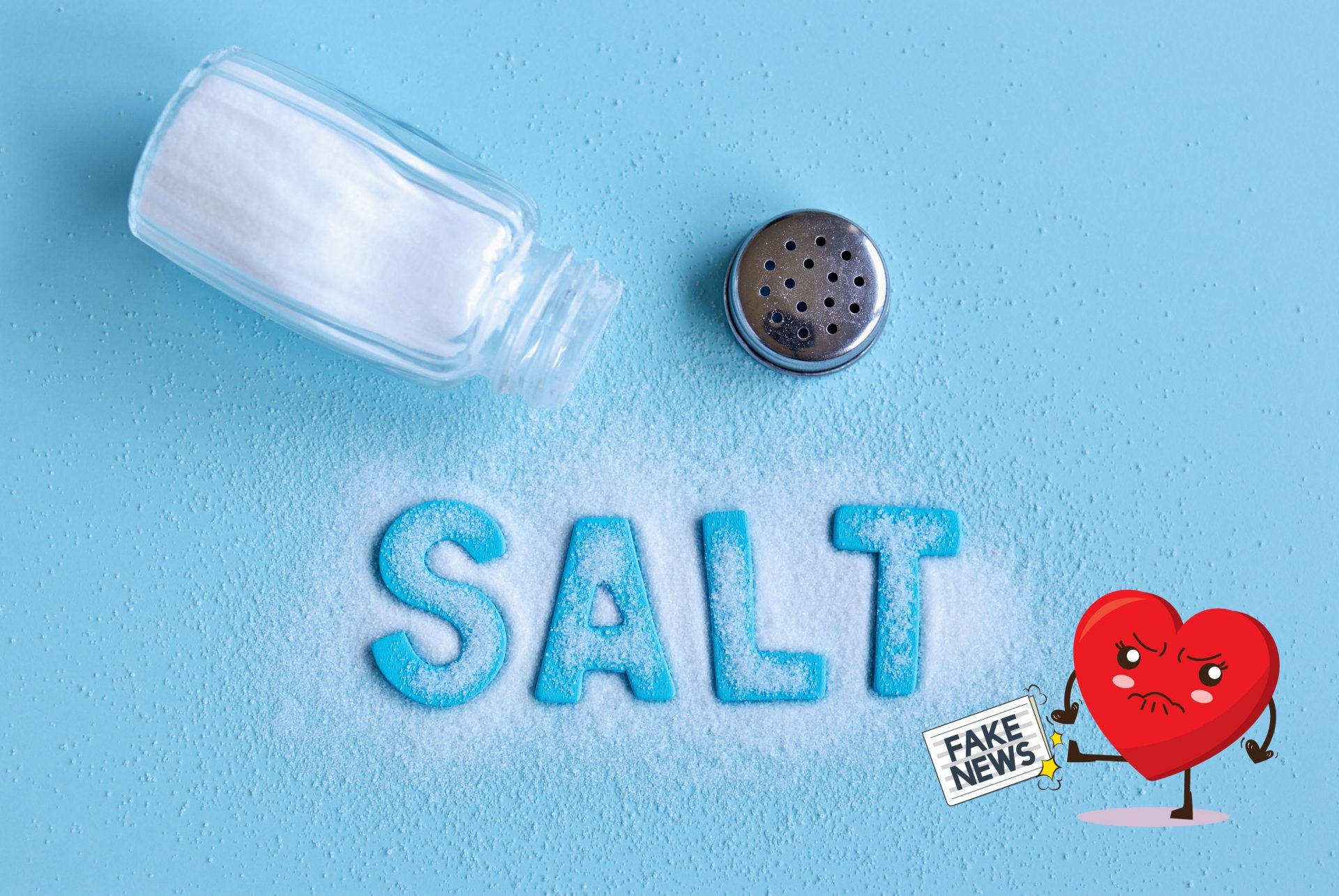
We have all heard the warnings, the nagging reminders to cut down on salt. But is salt really the villain behind those soaring blood pressure numbers?
Let's dive into the salty sea of information and see if we can separate fact from fiction.
The Salt Myth
First things first, let's address the prevailing myth that salt is solely responsible for high blood pressure. It's true that excessive sodium intake can lead to fluid retention, and in some cases, this may contribute to elevated blood pressure. However, the relationship between salt intake and high blood pressure is more complex than we've been led to believe.

The Hidden Factors
High blood pressure, or hypertension, is a multifaceted condition influenced by numerous factors. While sodium is one of them, it's important to recognize that genetics, lifestyle choices, stress, obesity, and underlying medical conditions also play significant roles. Blaming salt alone oversimplifies the issue and ignores these other contributing factors.
The Individual Variability
Another crucial aspect to consider is that individuals react differently to salt intake. Some people are more salt-sensitive, meaning their blood pressure is more responsive to changes in sodium levels, while others have a higher tolerance. So, blanket statements about salt affecting everyone in the same way don't paint the full picture.
Historical Perspective
It's worth taking a step back in time to understand how the salt and blood pressure narrative evolved. Back in the 20th century, research studies indicated a correlation between salt intake and hypertension, leading to widespread recommendations to reduce salt consumption. However, more recent studies have provided conflicting evidence, challenging the simplistic cause-and-effect relationship.

The Role of Potassium
While sodium has taken the blame, we mustn't forget about its partner in crime—potassium. The delicate balance between sodium and potassium is crucial for maintaining healthy blood pressure levels. Increasing potassium intake has been shown to counteract the negative effects of sodium on blood pressure. So, rather than demonizing salt alone, we should focus on achieving a balanced sodium-potassium ratio.
The average adult consumes about double the recommended daily intake of salt.
Context Matters
In the salt debate, context matters greatly. The impact of salt on blood pressure varies depending on an individual's overall diet and lifestyle. For example, a diet rich in fresh fruits, vegetables, and whole grains can mitigate the effects of sodium, while a diet high in processed foods, saturated fats, and sugars may exacerbate them. It's essential to consider the broader dietary context when evaluating the role of salt.
Personal Responsibility and Moderation
Regardless of the ongoing scientific debate, personal responsibility and moderation are key. Like with most things in life, extremes are rarely beneficial. Consuming excessively salty food regularly is unlikely to promote optimal health. However, there's no need to fear every pinch of salt that graces our taste buds. As with any dietary component, balance and moderation are essential.
Conclusion
So, is salt the true culprit behind high blood pressure? The answer is a resounding "It's complicated." While reducing sodium intake may be beneficial for certain individuals, it's important to consider the bigger picture. Salt is just one piece of the puzzle, and factors such as genetics, lifestyle, and overall diet play significant roles in determining blood pressure levels. So, let's embrace a nuanced perspective and focus on a holistic approach to cardiovascular health, where moderation and overall lifestyle choices take center stage.
Frequently Asked Questions (FAQs)
1. Is salt intake directly responsible for high blood pressure?
Ans: While excessive sodium intake can contribute to fluid retention and elevated blood pressure in some individuals, the relationship between salt intake and high blood pressure is multifaceted. Other factors such as genetics, lifestyle choices, stress, obesity, and underlying medical conditions also play significant roles in the development of high blood pressure.
2. Does everyone react the same way to salt intake?
Ans: No, individuals vary in their sensitivity to salt intake. Some people are more salt-sensitive, meaning their blood pressure is more responsive to changes in sodium levels, while others have a higher tolerance. This highlights the importance of personalized approaches to managing blood pressure rather than assuming a universal response to salt intake.
3. Can reducing salt intake alone lower blood pressure?
Ans: While reducing sodium intake can be beneficial for certain individuals, it's important to recognize that blood pressure regulation is influenced by multiple factors. A holistic approach that includes lifestyle modifications such as maintaining a balanced diet, regular exercise, stress management, and medication (if necessary) is typically recommended to effectively manage high blood pressure.
4. Are all types of salt equally harmful to blood pressure?
Ans: The type of salt consumed can make a difference in overall health, but its impact on blood pressure specifically is still debated. Some studies suggest that reducing sodium intake from table salt (sodium chloride) alone may not have significant effects on blood pressure, while others propose that alternative salts like sea salt or Himalayan pink salt may contain trace minerals that could offer additional health benefits. However, more research is needed to fully understand the implications of different salt types on blood pressure.
5. Can increasing potassium intake offset the effects of sodium on blood pressure?
Ans: Yes, increasing potassium intake can help counteract the negative effects of sodium on blood pressure. Potassium-rich foods such as fruits, vegetables, legumes, and dairy products are recommended as part of a balanced diet to maintain healthy blood pressure levels. It's the delicate balance between sodium and potassium that matters, emphasizing the importance of consuming a variety of nutrient-dense foods.


.png)


